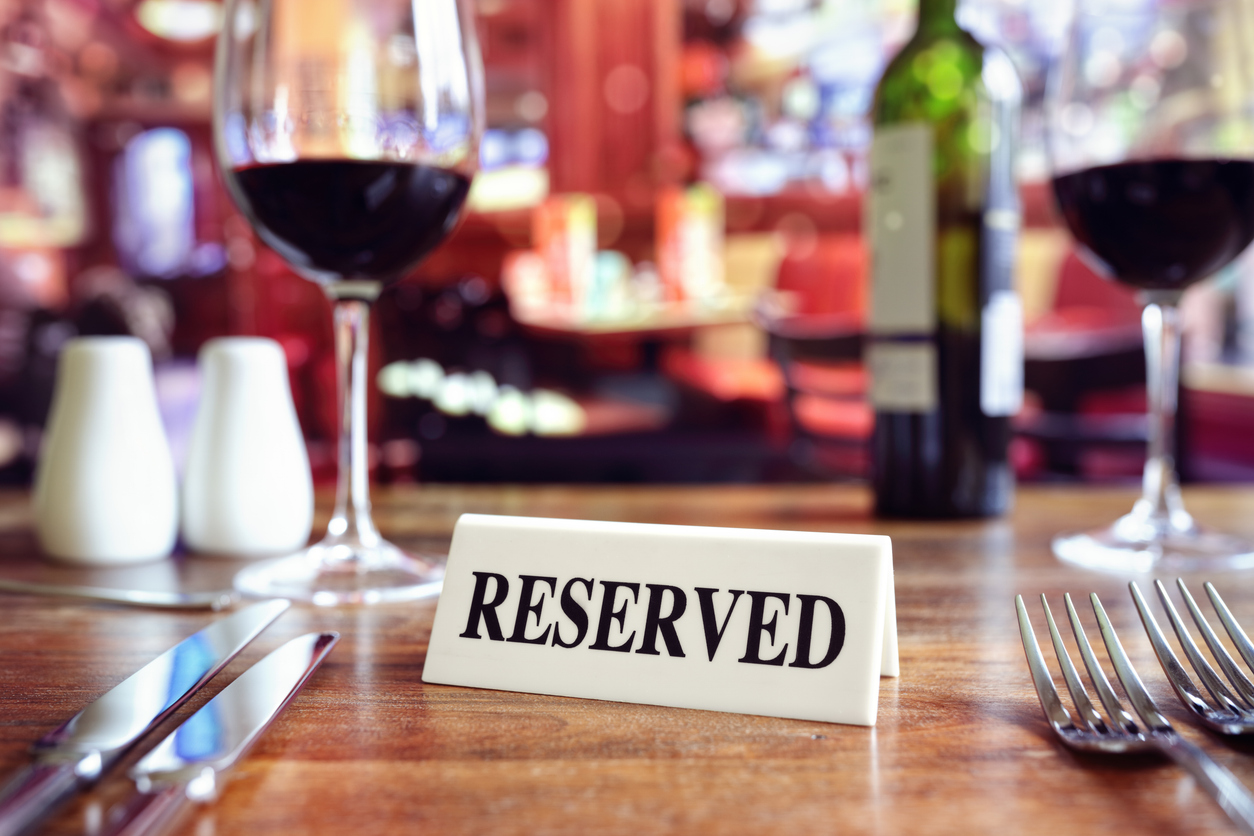Last week, the London restaurant St John opened reservations for a celebration of its 30th birthday. For much of September, the Smithfield restaurant will bring back its 1994 menu at 1994 prices. Tables were snatched up within minutes, possibly seconds. I sat at my computer refreshing the OpenTable booking site like a monkey at a slot machine and got nothing but a manic adrenaline rush that ruined my morning.
I’ve seen the algorithm create Soviet breadlines overnight
Please, reader, don’t pity me – it was, of course, just a minor inconvenience. What does wind me up is the principle: fun now has to be meticulously planned and booked weeks in advance. Most of the capital’s restaurants seem to operate on a bookings-only, no-walk-ins-please approach to filling tables, and people have adapted their social lives accordingly.
I can’t quite remember what life was like before the pandemic, but is this not a legacy of that anxious way of living, planning and stockpiling in a way that I thought we agreed made us deeply miserable? We have not returned to normal if we’re pencilling in friends for a one-and-a-half-hour dinner booking four weeks in advance. Living like that has all the same grim bureaucracy as scheduling a Zoom call.
Some months ago I realised I might have something that those books you buy in an airport WHSmith might call a ‘scarcity mindset’. This kept my caveman ancestors alive but means I get sweaty palms even if I go to Nando’s without calling ahead. I often sit on the bus with a thousand-yard stare, imagining an infinite queue, a ‘sold out’ sign, someone nabbing the last table just before I arrive. Surely this is no way to live, certainly not in a time of plenty, but the odds are increasingly against me – OpenTable’s online reservations are up 9 per cent on what they were pre-pandemic (you can make an OpenTable booking directly through TikTok now).
Even if you do book ahead, you’re often allocated a time slot. I know food is both an art and an industry, that restaurants aim to turn over tables as quickly as possible, but being handed a bill and asked to vacate a table can feel dehumanising. Restaurants are supposed to be one of the few places you can exchange money for goods and leave without feeling like a slave to consumerism.
This way of operating seems to be spreading. Last summer, I walked eight miles to a pub in the Cotswolds (my silly mistake for thinking other Londoners wouldn’t be out there playing peasant, too). When I arrived, the clientele was oddly familiar: twenty-somethings wearing oversized Ganni shirts, scrunchies and Adidas Sambas, smoking rollies with their single hoop earring boyfriends. Starving, covered in stingers and burs, I hoped against hope. They were fully booked. The yuppies had come to town. And yes, I know I’m one of them, but come on. I’d walked eight miles, not simply driven there in my Prius. How can a pub, in a village of no more than a few hundred people, be fully booked?
We’re at least lucky to have avoided the reservation disaster of New York, where bots and black-market middlemen snipe tables as soon as they’re available and resell them at exorbitant prices. One scalper made $70,000 (about £53,000) last year selling tables through the third-party site Appointment Trader. Still, where America leads, Britain will surely follow.
Like many of the world’s ills, we can blame social media. London’s chi-chi bakeries are lawless places where I’ve seen the algorithm create Soviet breadlines overnight. Young people would rather stay in on Friday night so they can get up early and join a queue, all because a man called Eating With Tod made a TikTok about some grotesque and oozing monster doughnut.
These queues are mostly civil, but I’m not sure I’ve ever recovered from the Great Toilet Paper Panic of 2020. Those apocalyptic scenes of people clearing the supermarket shelves made me certain that, in a real doomsday scenario, they’d have no qualms about sacrificing me on an altar made of loo roll. So, despite my protests, the only way I can find peace of mind nowadays is with the security of an online booking – in other words, by succumbing to the death of spontaneity. It’s a noble thing to try to resist, to fly under the Resy radar, but be warned in advance – you’re signing up for a hunger strike.








Comments